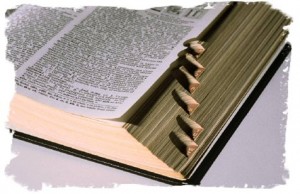 [1]Mr. Fulwiler [2], how is it going? So, I see you have contributed over at Catholic Exchange. You offered some good thoughts on Libertarianism. I would have to say I agree with much of what you said. I went to your parish this past weekend. It is most beautiful.
[1]Mr. Fulwiler [2], how is it going? So, I see you have contributed over at Catholic Exchange. You offered some good thoughts on Libertarianism. I would have to say I agree with much of what you said. I went to your parish this past weekend. It is most beautiful.
Mr. Skojec [3], long time since those Steubenville days. For whatever reason, I think I remember some conversation in the J.C. Williams Center. I can’t remember the topic, but it was lively. I like what you wrote over there at CatholicVote and I have to say I think I agree with much of what you say.
So how do we square those two articles? Well, a definition of terms is needed. I found this fact out as I posted some comments on Facebook one day and noticed some compelling responses from people I really hold as superior in political economics. The problem is one word: “Liberalism.” In that conversation I learned quickly that we were talking about different things.
So, let’s start defining the term. Historically, at least in the old days, it followed its Latin root, “liber” meaning free. This is why we study the liberal arts. The aim is to educate a person to be free. Later, it became the calling card for the intellectual or the wealthy.
Liberalism, for a time, also meant the opposite of what it means today. It was a political system that wanted less centralization of government affairs. As time ticked toward the late 1800s, the word was used to describe the cancellation of anything that wasn’t material. Under this form, liberalism meant being free from anything supernatural including God, moral law, and of course the Church. Man replaces God as arbiter of Truth. The Church answered this notion with a one, two counter punch by defining papal infallibility.
In today’s plain usage, that word is associated with some kind of progressive attitude, usually in politics. It still holds that material is all there is and so logically concludes communism and anarchism as kissing cousins. Chesterton called them Hudge and Gudge. Pesch called them collectivistic socialism and individualistic capitalism, which he defines as “unbounded dominion by those who own capital.” Pesch also noted nearly 100 years ago that the free market needs the State to protect contracts and so for capitalism to have any reasonable chance of working, it must have some rules outside itself which liberalism rejected. He also noted that the State cannot cross the boundaries into the free market because “it makes super-human demands on some central administration, and it sacrifices genuine human liberty.”
In today’s dialogue, “economic liberalism” is often used and is also very confusing. For some it means unfettered markets and its cartel driven conclusion that then leads to socialism and others mean those economic principles that will give most freedom to the person. Obviously, the former is lacking and the latter seems to square with Catholic social teaching.
So there is a very good chance that both Mr. Joe and Mr. Steve are correct. Maybe they are just speaking about different types of liberalness. I have yet to meet a libertarian who thinks monopoly and cartels are great or that murder for hire is fine-and-dandy. I also have yet to find a limited government conservative (for lack of a better descriptor) to think that the State needs to meddle in the affairs of everything.
Originally published at Ignitum Today [4].